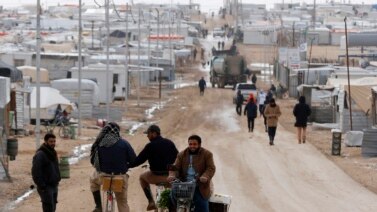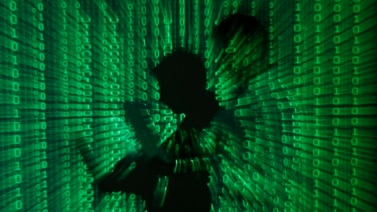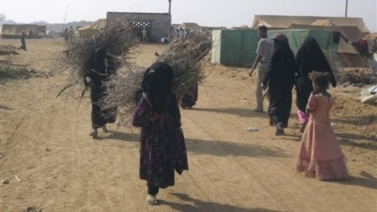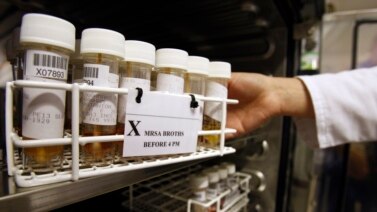Over the last few months, a group of American high school students produced a film that explores racial stereotypes. The students wanted to show how problems can result from having ideas about a person based only on his or her race. They also wanted the film to provide possible solutions.
Racial stereotypes are painful
The students all attend Bethesda-Chevy Chase High School in Maryland. It is known locally as BCC. The film is called “I, Too, Am BCC.” It looks at the school's African-American and Hispanic students. They share their thoughts and experiences throughout the documentary. They talk about comments they heard that represent racial stereotypes -- like that blacks are not as smart as whites.
Some students say they feel that they have had to take extra steps to prove their intelligence. Others say that being the only black or Hispanic student in a competitive, high-level class makes them feel as if they do not belong. They say other students are surprised to learn when a minority student has a strong, academic record.
Abigail Braithwaite is one of the three producers of “I, Too, Am BCC.” She said the students filmed for the documentary really tell the story. She said she found that they often shared the same experiences in different situations.
“In the video, a student, Yannik Alexis, tells a story about how his friend, who was like, 'Oh, you don’t look like you get straight As!'
Abigail Braithwaite said she also had a friend express surprise that Braithwaite was taking honors classes. Abigail said she felt sure that that perception was based on the fact that she is African-American.
Filmmaker Makdes Hailu said the documentary helps students who make such comments understand how much pain and damage they cause.
"It’s nothing like, you know, 'I hate you because you're black.' It's none of that. It's really small, micro-aggressions that you hear. It's not necessarily like the person being racist, but the person is buying into all these ill-perceptions that the media portrays.”
Talking about it
The student filmmakers visited about 50 classes where they showed the documentary. Afterward, they would hold discussions about race.
“Watching the video is nice, but it’s not really put to effect unless you have discussions afterwards.”
Makdes Hailu says the message they tried to express was that stereotypes are wrong.
Sharif Robinson is an assistant principal at BCC. He says producing films on racial stereotypes is part of the school’s Minority Scholars Program.
“Our goal for the Minority Scholars Program is to empower students to identify issues at their school, but not just identify the issues, but come up with resolutions.”
Mr. Robinson said the makers of “I, Too, Am BCC” did exactly that.
Looking for solutions
Another of the student filmmakers, Orlando Pinder, said one of the solutions is to meet people who are different from you.
“What we say is just try to meet someone of another race. Try to meet someone who is different than you. If you live in a very segregated area, and you only know black people or you only know white people, you’re not going to get a sense of the other side.”
The young filmmakers are now working on their next project. They are interviewing students from other high schools in the area and creating a second film on racial stereotypes.
I’m Caty Weaver.
VOA’s Faiza Elmasry reported on this story from Washington. Caty Weaver adapted it for Learning English. George Grow was the editor.
Words in This Story
stereotype – n. a belief that many people have about all people or things with a similar characteristic or quality
perception – n. the way you think about or understand someone or something
portray – v. to describe (someone or something) in a given way
segregate – v. to separate groups of people because of their race or religion
interview – v. to question or talk with someone in order to get information





